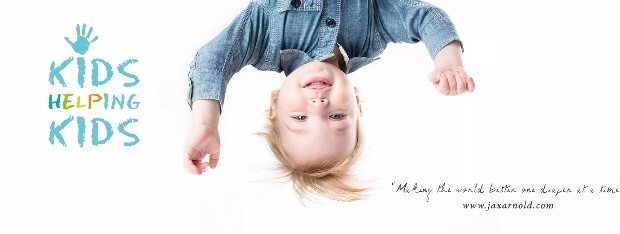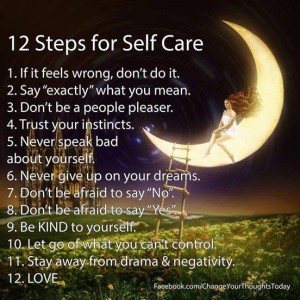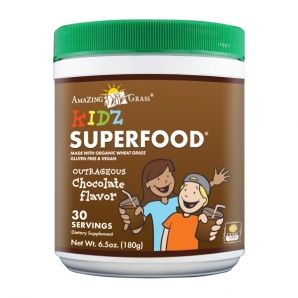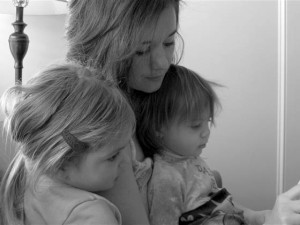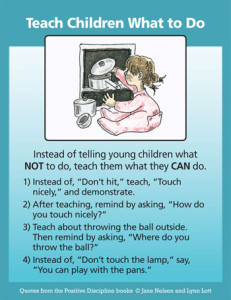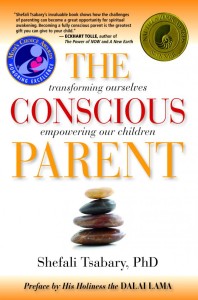9 Ways to Teach Your Child About Charity from parents.com
By Chick Moorman and Thomas Haller
To help your children acquire the habit of charity, consider implementing as a family the strategies which follow.
1. Donate clothes.
Periodically go through your closets rooting out clothes you haven’t worn in a while, which can be given to the Salvation Army or Goodwill for distribution to the needy. Encourage your children to do the same. Allow them to select which clothes or toys they wish to donate. The value of this activity is diminished greatly if you go through their closets for them without their presence. For maximum benefit, get your children involved in choosing the appropriate items. Take your children with you when you drop the items off at the charitable destination.
2. Help neighbors.
Regularly engage in a service-oriented project. Rake the leaves of an elderly couple. Bake cookies for a serviceman or servicewoman. Bake bread and deliver it to the homeless feeding station in your community.
3. Give blood.
Take your children with you so they see you as a model for giving. Talk to them about why you choose to donate blood and what you hope it will accomplish by doing so.
4. Make birthdays charitable.
Set up birthday parties as a time for giving to others. At your child’s first school-age birthday party, ask guests to bring a gift of a book (new or used) to be donated to a local charity. Talk to your son about the books he has and about children who have no books. Explain that one way to celebrate a birthday would be to give to those who have less. Involve the birthday boy in the decision of whether not to give the books to a woman’s shelter, a doctor’s office, or some other appropriate organization. When you deliver the books with your son, record it on camera, and revisit that movie (or those pictures) on future birthdays.
5. Include pets.
At regular intervals, buy dog or cat food and take it to the humane society. Allow your children to spend some time with the recipients of the gift.
6. Deliver nutrition.
Build food baskets around the holidays and give to a needy family suggested by your church or school. Involve your children is selecting canned goods, fruit, and other treats to include. Decorate the gift package and deliver it together, as a family.
7. Change for a difference.
Create a charity jar to be used by the family when allowances are distributed. Invite children to share some of their allowance with others through donating to the jar. As the jar fills, decide as a family where to contribute the contents. You may choose to save a whale, buy gloves for needy children, or contribute to a cancer charity among others. Read about various charities on the Internet and share this information with your children to help them make an informed decision.
8. Help elders.
Do things for the elderly that they have trouble doing for themselves. Pick up sticks in your neighbor’s yard after a big windstorm. Mow the grass for Grandma. Wash Grandpa’s car. Clean their windows in the spring. Help them plant flowers.
9. Pitch in.
Get on a regular service schedule at your church or synagogue. Sign up for a time to mow the grass and trim the bushes. Take your turn ushering and allow your child to assist.
By implementing some of these ideas or others like them, you will be teaching your children that charity is not reserved only for emergencies. You will be helping them appreciate that reaching out to others in need is a way of life, rather than a moment in time when a catastrophic disaster occurs. Remember, while you are giving to others, you are giving your children important messages about your beliefs concerning the spirit of giving.
Chick Moorman and Thomas Haller are the authors of The 10 Commitments: Parenting with Purpose. Moorman is a former classroom teacher and the currect director of the Institute of Personal Power.
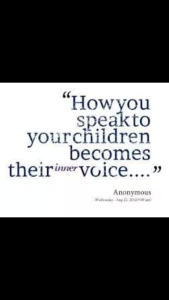 One of the ways our children’s inner voice is developed is through the communication in which we create with them. If we speak from a place of love, worthiness, belief, acknowledgment, peace and positivity, our children will take the seeds of this language, plant them into their minds, absorb them over time and blossom into their fullest being and potential and share it with others.
One of the ways our children’s inner voice is developed is through the communication in which we create with them. If we speak from a place of love, worthiness, belief, acknowledgment, peace and positivity, our children will take the seeds of this language, plant them into their minds, absorb them over time and blossom into their fullest being and potential and share it with others.